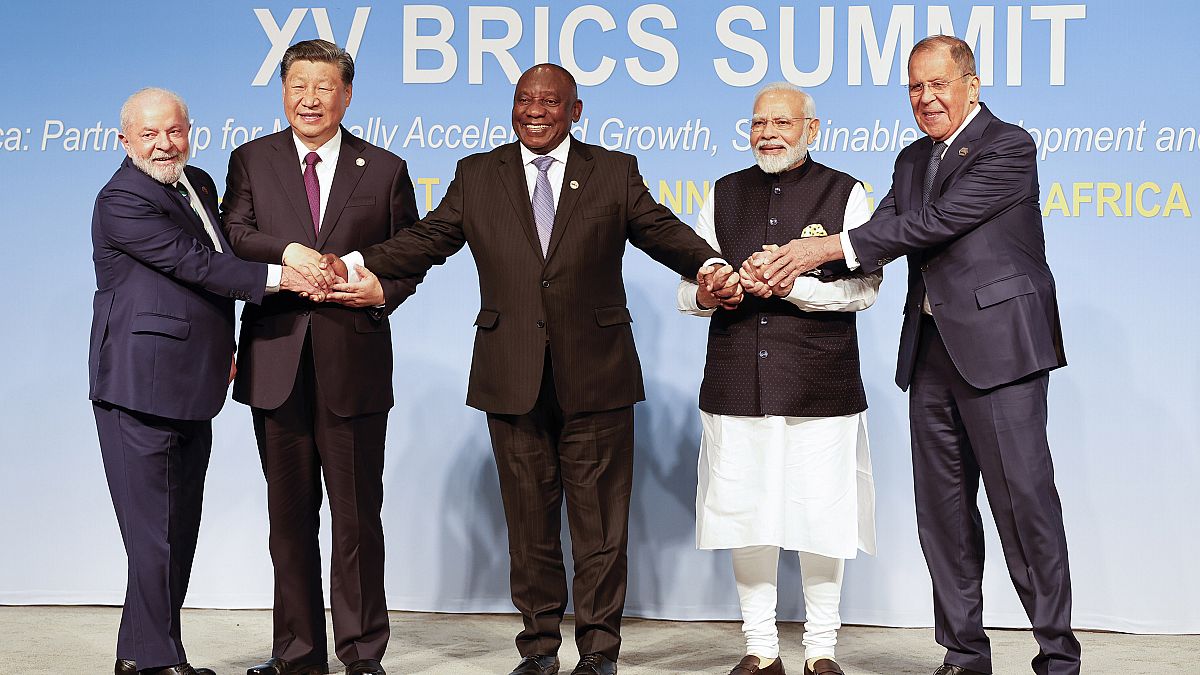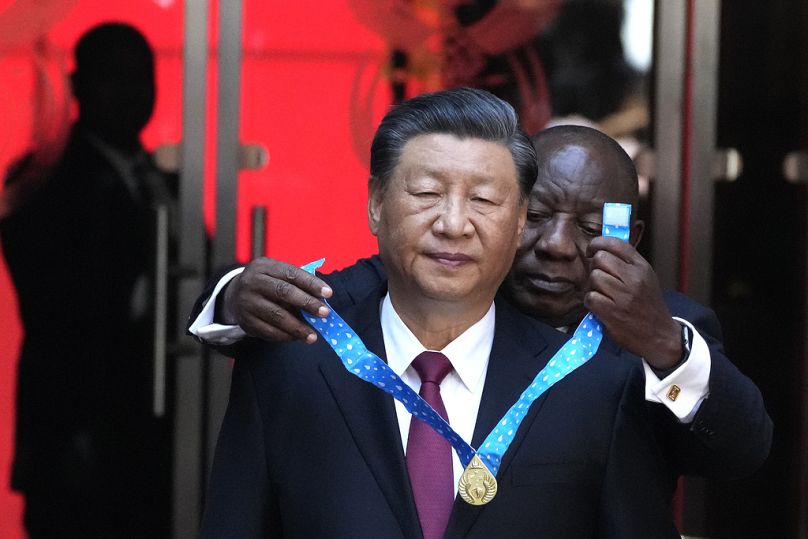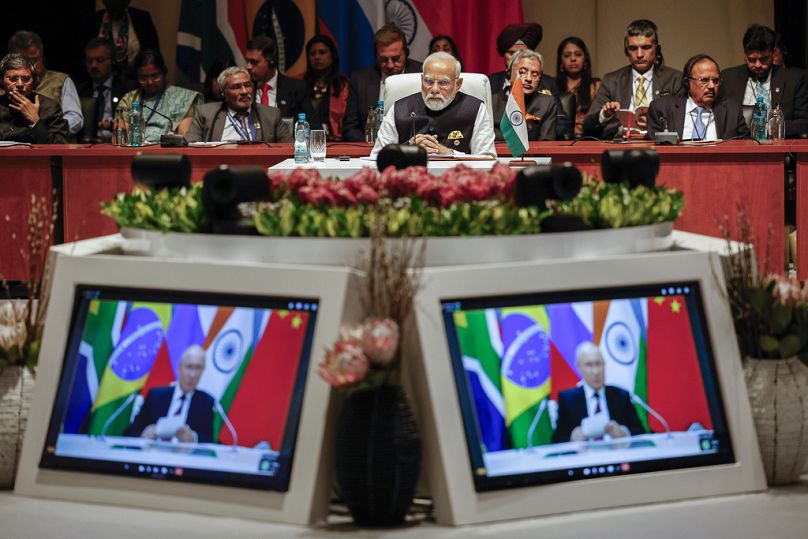The bloc of countries consisting of Brazil, Russia, India, China and South Africa want to expand their influence on global economic and political affairs. The ongoing invasion of Ukraine is their first target.
The leaders of China and South Africa say they want to be part of negotiations to end the war in Ukraine.
“The two sides… agreed that dialogue and negotiation is the only viable option for resolving the Ukraine conflict, and they will continue to promote talks for peace and play a constructive role in the political settlement of the issue,” said a joint statement released on Tuesday.
Xi Jinping, the President of China, is in South Africa as part of the BRICS summit, which brings together nations perceived to be outside traditional Western power structures or pushing for a less Western-centric perspective on geopolitics.
China has been promoting a 12-point “peace plan” which includes a ceasefire, a resumption of peace talks, the termination of “unilateral sanctions” against Russia, and urged more safety for nuclear power plants and a commitment by both sides not to use nuclear weapons, among other things.
Russia and Ukraine previously participated in European-based talks, often referred to as the Normandy Format due to the first meeting coinciding with the anniversary of D-Day celebrations, which were established after the first invasion of the country in 2014.
The dialogue between the two collapsed despite last-ditch attempts by France and Germany to revive the format in January of last year on the eve of the full-scale invasion.
The ongoing BRICS summit, taking place in Johannesburg, has been the source of controversy for months after it was announced that Russian President Vladimir Putin would be in attendance.
South Africa is a signatory of the treaties that established the International Criminal Court, which launched an indictment for war crimes perpetrated against Ukrainians that includes Putin and his co-conspirators. The government in Pretoria would have been obliged to arrest him upon arrival or risk running afoul of the treaty.
Ultimately, Russia was represented by Foreign Minister Sergey Lavrov instead of Putin, despite the focus being on heads of state.
‘De-dollarisation’ as a workaround for sanctions
Other suggestions the summit put forward include “de-dollarisation” or a reduced reliance on the dollar as the go-to international currency of trade and global economic activity.
In a video speech broadcast at the event, Putin claimed that “the objective, irreversible process of de-dollarisation of our economic ties is gaining momentum.”
The Russian economy initially took a hit and experienced double-digit inflation after a series of sanctions were imposed on the country by the EU and the US following the assault on Ukraine in February 2022.
After rebounding earlier this year, inflation is once again on the rise in Russia. Experts claim that Putin will attempt to bring it down again as he eyes his re-election campaign in March, particularly by boosting trade with Africa and South America and new north-south trade routes to the Gulf and Indian Ocean.
BRICS member states insist that their local currencies should be used in international trade and be backed by the New Development Bank, which was established at a previous summit and is headquartered in Shanghai.
The member states encompass around 40% of the global population and insist that their influence on the world should reflect the fact that they represent world’s largest and most populous countries.
Threat to the Western pro-Ukraine bloc
European nations and the US have eyed the summit and Russia’s attempts to corral support away from their united front in support of Ukraine.
In June, African leaders from Egypt, South Africa, Zambia, the Republic of Congo and Senegal visited Kyiv and introduced their peace plan which envisages an “immediate cessation of hostilities” and negotiations to commence.
Ukrainian leaders have repeated that the country will not negotiate any peace agreement with Russia until Moscow’s powers leave the occupied territories of the country and Ukraine regains control of its internationally recognised borders.


